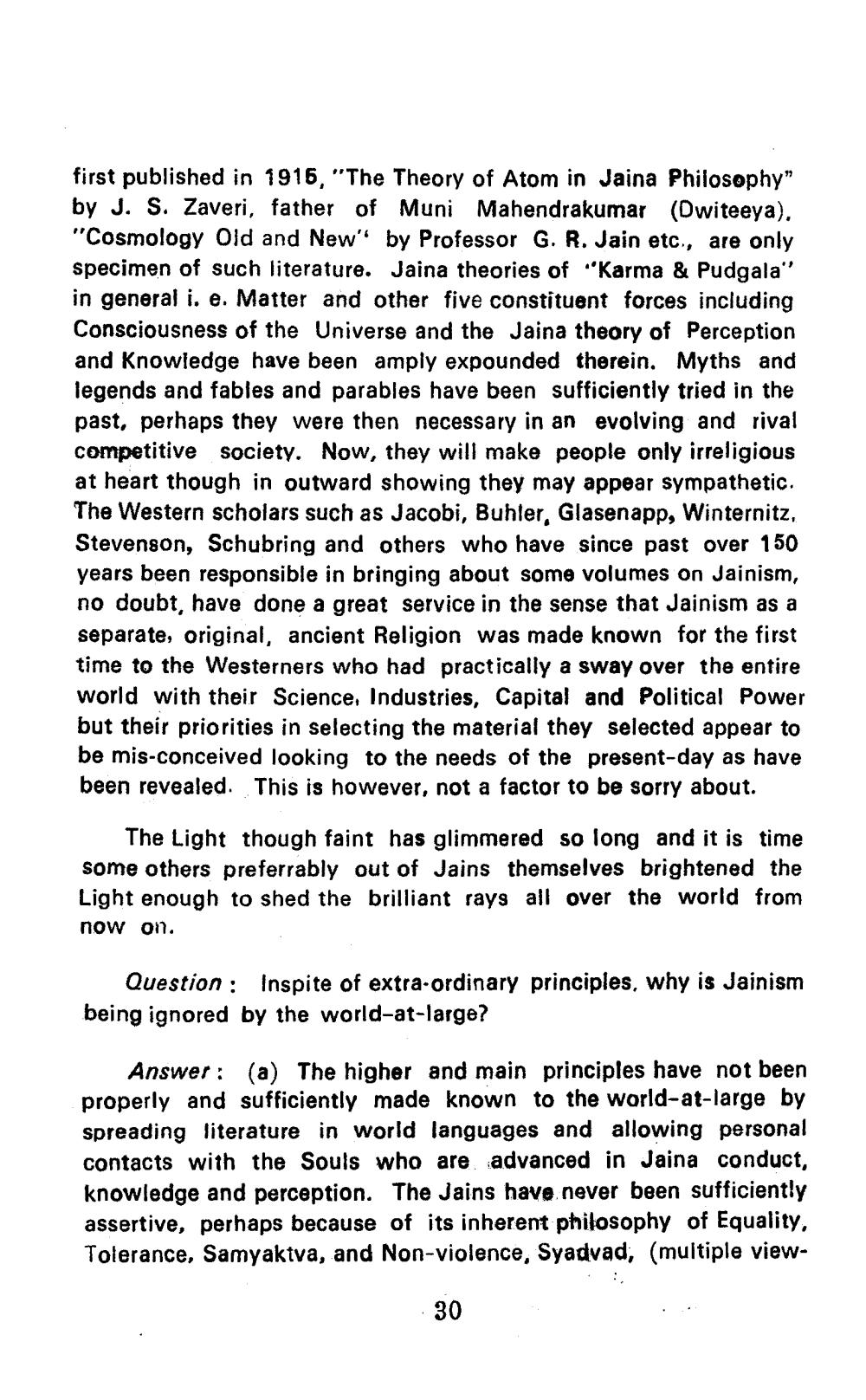________________
first published in 1915, "The Theory of Atom in Jaina Philosophy" by J. S. Zaveri, father of Muni Mahendrakumar (Dwiteeya), "Cosmology Old and New" by Professor G. R. Jain etc., are only specimen of such literature. Jaina theories of "Karma & Pudgala" in general i. e. Matter and other five constituent forces including Consciousness of the Universe and the Jaina theory of Perception and Knowledge have been amply expounded therein. Myths and legends and fables and parables have been sufficiently tried in the past, perhaps they were then necessary in an evolving and rival competitive society. Now, they will make people only irreligious at heart though in outward showing they may appear sympathetic. The Western scholars such as Jacobi, Buhler, Glasenapp, Winternitz, Stevenson, Schubring and others who have since past over 150 years been responsible in bringing about some volumes on Jainism, no doubt, have done a great service in the sense that Jainism as a separate, original, ancient Religion was made known for the first time to the Westerners who had practically a sway over the entire world with their Science, Industries, Capital and Political Power but their priorities in selecting the material they selected appear to be mis-conceived looking to the needs of the present-day as have been revealed. This is however, not a factor to be sorry about.
The Light though faint has glimmered so long and it is time some others preferrably out of Jains themselves brightened the Light enough to shed the brilliant rays all over the world from
now on.
Question: Inspite of extra-ordinary principles, why is Jainism being ignored by the world-at-large?
Answer: (a) The higher and main principles have not been properly and sufficiently made known to the world-at-large by spreading literature in world languages and allowing personal contacts with the Souls who are advanced in Jaina conduct, knowledge and perception. The Jains have never been sufficiently assertive, perhaps because of its inherent philosophy of Equality, Tolerance, Samyaktva, and Non-violence, Syadvad, (multiple view
30




